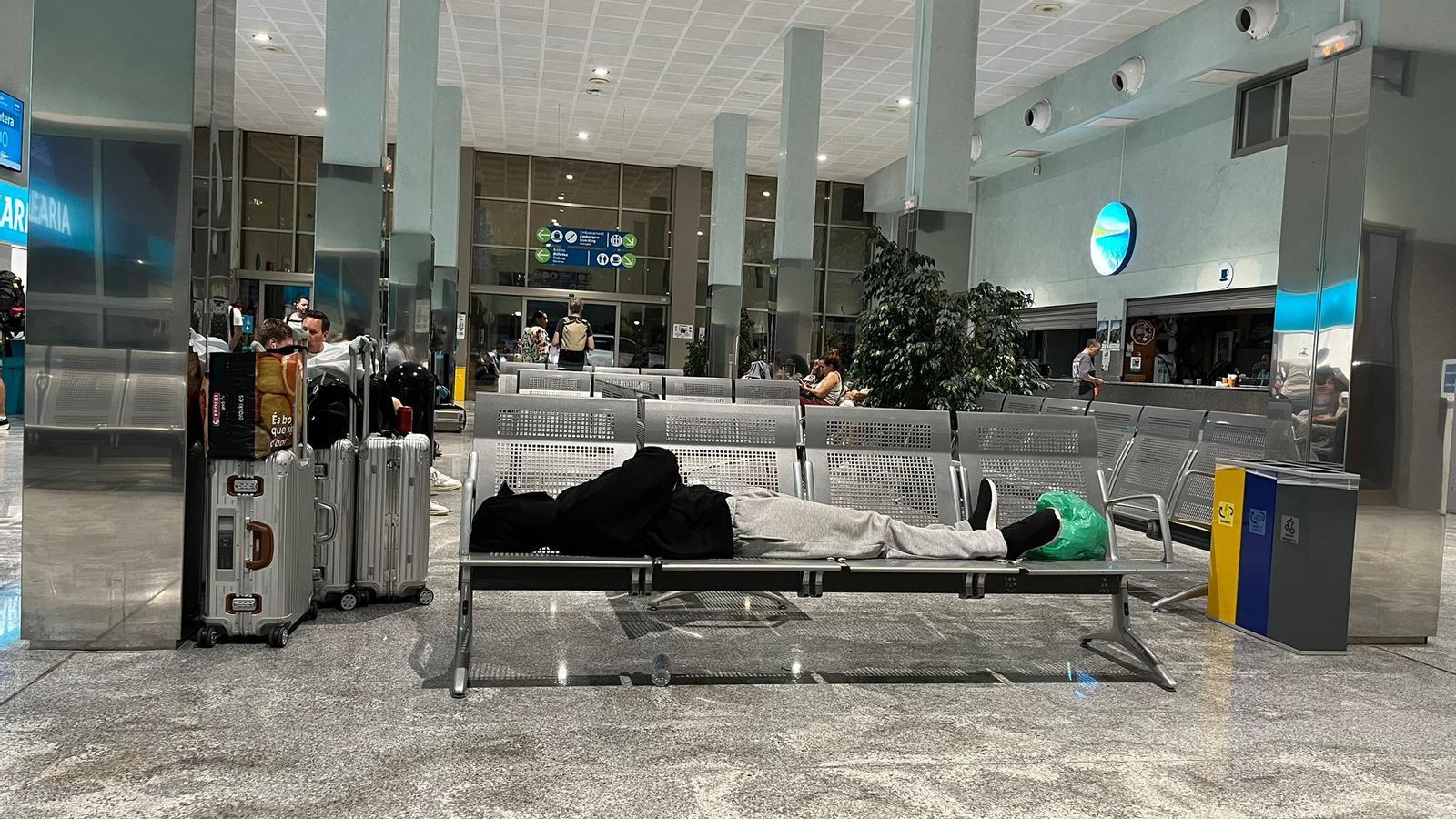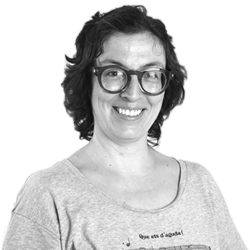The migrant drama and tourism coexist in the port of Palma.
Travelers mingle with migrants at Maritime Station No. 3 from early morning.


PalmPassengers gather at 6:30 a.m. at Maritime Station No. 3 in the port of Palma. There's a ferry to Formentera at eight, and a queue has formed in front of the shipping company's offices to get their boarding passes. On a bench at the back of the building, a young man sleeps, oblivious to the entire oil mill. He's dressed in a tracksuit with a hat covering his face. At his feet, he has a green plastic bag with a sweatshirt inside. He's one of the thousands of people who have arrived by boat in recent weeks. He's resting soundly, while the noise increases as the minutes pass. Spoons can be heard tapping against cups in the cafeteria, a sleepy child cries, and a nervous dog scratches its owner's legs. There are more suitcases and backpacks at every turn. Near the sleeping young man, a woman is burning herself with hot water, oblivious to her surroundings. Groups of young people show their excitement at traveling with their friends.
Not only are passengers entering the station, but young Algerians are also appearing, entering the bathroom. In a few moments, they've filled it with toiletry bags, toothbrushes, and soap bottles. You can feel them coughing. On one of the benches, someone leaves another plastic bag, this time from the Red Cross. A port worker complains because water splashes on the floor and it gets dirty. He says he understands that, after an ordeal at sea, they need a minimum of hygiene, but he doesn't think a public bathroom is the right place. "They mix with the tourists and it's just not right; everything is a mess," he says, while one of the waitresses at the cafeteria agrees. "There isn't a day they aren't there. They leave them here and they stay for hours. I've seen hundreds," she adds, with a serious expression.
No passenger even looks at them. Only one person is surprised when he also enters the bathroom, from where another young migrant emerges, goes to the cafe and orders a coffee. The waitress angrily asks him what he wants. He only knows French, and no matter how much she points at the milk, booing, "milk"He can't quite make up his mind. He pays the same price as any tourist to a place where nothing is cheap: more than five euros for a coffee with milk and one croissant precooked—this editor knows because she's eaten one. Next to her, a tourist looks at her and moves a little further away at the bar. Anyway, the foreign traveler gulps down the coffee and leaves immediately.
A national police officer enters the bathroom and gives some instructions to the young migrants who, according to the paper one of them shows, are Algerian and arrived on Friday on a boat carrying 16 people. They've been here for three days. Most of them sleep under a tree outside the station, surrounded by the noise and dust of the construction work for most of the day. They've hung some clothes on the branches and also use them to lie on. They tell me to wait and shout to a colleague who they assure me speaks English. He only recognizes a few words, but despite the difficulties, he tells me a few things. They are between 20 and 30 years old and have been told they will be taken to Valencia, but they can't find anyone from the Red Cross to find out if they will be leaving today. It's very early. They have to wait a while. "I'm very tired, he doesn't sleep well here," says the young man speaking to me, while everyone gives him directions in Arabic and French. Right in front of me, a tourist gets out of a luxury Uber car loaded with suitcases.
"Almanco, you're alive," I tell her. "Yes, we are alive," she replies, and we shake hands. "Have a nice day," she wishes me, while the others wave goodbye with their arms raised. The port has filled with cars, impatiently queuing. In addition to the migrants under the tree, some parked caravans can be seen, and in a van, an elderly man is taking things from a shelf containing clothes. Right next to him, a young man tells his dog not to be impatient; his mother will arrive soon.
